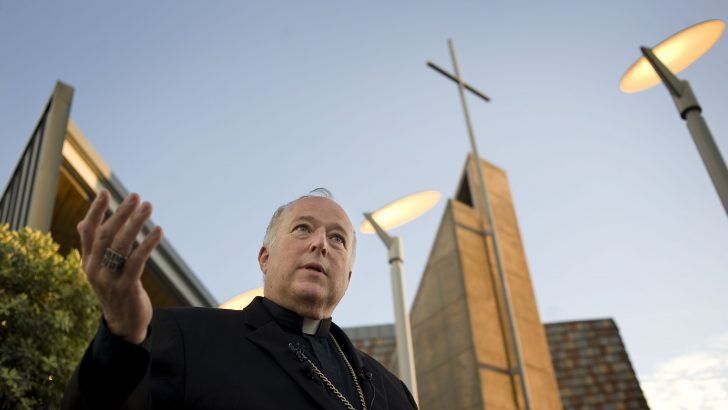US laity still have ‘serious partners’ in episcopate, writes Michael W. Higgins
Having barely weathered the media fallout of the McCarrick Affair and the Pennsylvania Grand Jury Report with its indictment of some 300 priests over 70 years with a thousand abuse allegations, the American episcopate is bracing itself for a highly scrutinised meeting of its membership this month.
Cardinal Donald Wuerl of Washington, a senior ranking cleric of pro-Francis sensibility, has submitted his resignation to the Pope predicated on his failure for appropriate oversight regarding abuse cases in Pittsburgh when he was Ordinary of that diocese – the resignation was accepted, if reluctantly, by the Pope.
Scandals still erupt, however, though with less intensity. The latest: an auxiliary bishop of New York Archdiocese has been relieved of his duties based on an allegation that both the civil and ecclesiastical authorities concede has a high rate of credibility.
Many in the episcopate wait nervously for the next shoe to drop, many others are vocally critical of Francis and his leadership in a time of institutional meltdown, and most, as is often the case, seem muddled and panic-stricken, remorseful and fearful of the future, unnerved and numbed by their collective dereliction.
Good leaders
It is too sad. Many otherwise good leaders are sullied by association, and there is little in the way of vision and new thinking being proffered.
It doesn’t help that a past nuncio to the US has galvanised discontent toward the Holy See, Francis and his American allies, and contributed to a polarising of the Church that is now comparable to the riven hostilities unleashed by Donald Trump’s presidency.
But not all is lost. Catholic laity, once again demoralised by the failures of an uninspiring episcopal leadership and driven to find ways out of the national malaise on their own, do have some serious partners in the episcopate.
Enter Robert McElroy, Bishop of the Diocese of San Diego, California.
A rare intellectual among US bishops – he has an undergraduate degree from Harvard in history and a doctorate from Stanford in political science, in addition to graduate work in theology at Berkeley and a doctorate from one of Rome’s pontifical universities, the Gregorian—he is poised to provide some bold directions in a time of loss and confounding.
On a recent visit to Sacred Heart University, a lay-run Catholic university in Connecticut, to deliver two lectures – ‘The Pastoral Revolution of Pope Francis: The Challenge for the Academy in Today’s Changing Church’ and ‘The Church is a Field Hospital: Pope Francis’s Pastoral Vision for God’s People’ – McElroy exhibited an impressive openness and transparency that augurs well for a serious reformation of attitude and pastoral strategies in the US. He was not shy in naming the national pathologies of the heart and the spirit.
He issued a challenge to his brother bishops: unless we bishops solve the problem of clerical sex abuse, or at least have a workable plan to address it with all its ramifications, we dare not return to our dioceses. We have precious little credibility left and we need to both empower and actualise the laity.
One direct way of recovering their waning influence among Catholics is to implement the pastoral vision of the current Bishop of Rome, a vision that McElroy described in some detail outlining Francis’s foundational metaphor of the field hospital – a Church for the messy, the disorganised, the inefficient, a struggling humanity capable of spiritual heroicity.
We are all – that is everyone, without exception – patients in this field hospital, in need of caring not cheap judgmentalism, and the Church’s ministers must always give priority to mercy, the only antidote to despair and guilt.
The Catholic Church in the United States is roiled by controversy and unprecedented divisiveness but it is not without leaders of intellectual and moral probity.
Key among such a number is the Bishop of San Diego.


 San Diego Bishop Robert W. McElroy
San Diego Bishop Robert W. McElroy 